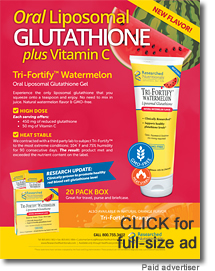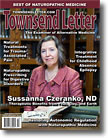Page 1, 2
Chronic stress can result in tight, spasmodic muscles, provoking pain, fatigue, and weakness. Engaging in light physical activity through stretching, yoga, walks through nature, and enjoyable activities is useful for encouraging relaxation, loosening tight muscles, improving blood flow, and decreasing pain. Light physical activity coupled with a mind-focusing activity creates a perfect marriage for stress-reduction by targeting both physical and mental stress. Deep diaphragmatic breathing can serve as another important adjunct to both mental and physical activities intended to reduce stress.
 Creating a calming environment through the use of music and light is a simple way to sustain a state of relaxation.19 Like guided imagery, music therapy promotes positive emotions while reducing anxiety and stress. Classical music, particularly, has been shown to positively stimulate the parasympathetic nervous system to slow the heart rate and relax muscles. Colored light has the ability to affect brain hormones such as serotonin and melatonin, both of which are important for establishing a healthy wake/sleep cycle and contribute to positive moods.20 Specific colors have been used to foster specific moods in the practice of chromotherapy. Most individuals can affirm the positive effects of warm sunlight versus the cold, fearful feelings provoked by dark, shadowy colors. Aromatherapy is yet another potential means of generating a calming environment, helpful for reducing stress. Creating a calming environment through the use of music and light is a simple way to sustain a state of relaxation.19 Like guided imagery, music therapy promotes positive emotions while reducing anxiety and stress. Classical music, particularly, has been shown to positively stimulate the parasympathetic nervous system to slow the heart rate and relax muscles. Colored light has the ability to affect brain hormones such as serotonin and melatonin, both of which are important for establishing a healthy wake/sleep cycle and contribute to positive moods.20 Specific colors have been used to foster specific moods in the practice of chromotherapy. Most individuals can affirm the positive effects of warm sunlight versus the cold, fearful feelings provoked by dark, shadowy colors. Aromatherapy is yet another potential means of generating a calming environment, helpful for reducing stress.
Stress-Reducing Botanicals/Nutrients
As alluded to earlier, chronic stress places substantial demands on various biological systems – most notably, the endocrine system, which is responsible for producing many of the hormones involved in the stress response. As stress-reduction is pursued, various botanicals may be helpful for supporting these biological systems and motivating quicker improvement.21 Panax ginseng, Eleutherococcus senticosus, and Rhodiola rosea, are among the best known species of plants in a class of botanicals known as adaptogens. These botanicals support the adrenal glands and balance the production and enhance homeostatic control of stress hormones, particularly cortisol, thereby improving the body's resiliency to stress. However, some of these classic adaptogens can be somewhat stimulating to the system and can make issues such as anxiety and hypervigilance issues worse. Therefore, this author prefers using more calming or neutral adaptogens such as Withania somnifera (Ashwagandha).
Still other botanicals can help reduce anxiety, promote relaxation, and improve sleep by supporting the production of calming neurotransmitters in the brain, and/or by interacting with their receptors (i.e., gamma-aminobutyric acid or GABA receptors). These botanicals include valerian, chamomile, lemon balm, Bacopa, passionflower, and hops. Natural brain hormones such as melatonin and 5-HTP are temporarily helpful when disrupted sleep patterns and increased pain perception prevent recovery from stress.22 Similarly, amino acids such as L-theanine, L-tyrosine, and L-tryptophan can be useful in boosting natural hormone production since these amino acids are precursors in the production of many brain hormones and neurotransmitters. However, the latter two can also provide an unwanted stimulatory effect in some circumstances and should be used under the guidance of a health care professional skilled in the nuances of managing the stress response with nutritional and botanical agents.23
As conditions such as fibromyalgia, chronic fatigue syndrome, and irritable bowel syndrome continue to surge, it is imperative to remove any roadblocks to healing. Stress is a foremost concern in many health conditions and may not only be a roadblock but also a root cause of poor health and healing. Stress-reduction often clears the muddy waters of poor health and allows for a better representation of any genuine health concerns, making it an essential lifestyle modification.
Summary
While not every child who has been exposed to traumatic stressors will experience emotional and physical health calamities during childhood, adolescence, or adulthood, research shows that children exposed to traumatic events or long-standing stressors are 2.7 times more likely to experience functional somatic conditions such as fibromyalgia, chronic fatigue syndrome, chronic pain, irritable bowel syndrome, and others.3 Additionally, these conditions commonly coexist with psychiatric conditions such as anxiety and depression.
Considering the increasing prevalence of functional somatic conditions and emotional and psychiatric problems, it is important to consider the influence of childhood experiences in the development of these conditions. Dwelling upon past trauma is not always helpful in supporting health and healing and may actually be counterproductive; however, understanding its influence upon health is helpful in being able to appropriately identify elusive health conditions such as fibromyalgia. It is also important to understand for the purpose of protecting future generations from the debilitating effects of childhood trauma and stressors. Finally, it serves as a good illustration of the success of a naturopathic and functional medicine approach, which relies on a thorough health and lifestyle history to put together the "story" of an individual's health and gain insight into the root causes of health problems and emphasizes the incorporation of some basic daily stress-reducing relaxation practices, movement, botanical/herbal therapies, counselling, and life re-prioritization as part of the maintenance of wellness and the prevention of complex chronic disease, particularly in those individuals who may have experienced childhood adverse life events and significant early life and ongoing stress.
Page 1, 2
References .pdf
 Dr. David Brady is the vice president for Health Sciences, director of the Human Nutrition Institute, and associate professor of clinical sciences at the University of Bridgeport (Connecticut-USA), chief medical officer of Designs for Health, Inc and Diagnostic Solutions Laboratory, LLC, and is in clinical practice at Whole Body Medicine in Fairfield, Connecticut (USA). Dr. Brady is also the author of the Amazon Bestselling new book, The Fibro Fix, which provides a wealth of information on how to navigate your way toward getting the proper diagnosis and the proper treatment for symptoms of widespread pain and fatigue. Learn more at FibroFix.com. Also, learn more about The Fibro Fix Summit where Dr. Brady interviews 30+ experts on FM at FibroFixSummit.com. For additional resources and educational content, please visit Dr. Brady's main website at DrDavidBrady.com and follow him on Facebook at DrDavidBrady. Dr. David Brady is the vice president for Health Sciences, director of the Human Nutrition Institute, and associate professor of clinical sciences at the University of Bridgeport (Connecticut-USA), chief medical officer of Designs for Health, Inc and Diagnostic Solutions Laboratory, LLC, and is in clinical practice at Whole Body Medicine in Fairfield, Connecticut (USA). Dr. Brady is also the author of the Amazon Bestselling new book, The Fibro Fix, which provides a wealth of information on how to navigate your way toward getting the proper diagnosis and the proper treatment for symptoms of widespread pain and fatigue. Learn more at FibroFix.com. Also, learn more about The Fibro Fix Summit where Dr. Brady interviews 30+ experts on FM at FibroFixSummit.com. For additional resources and educational content, please visit Dr. Brady's main website at DrDavidBrady.com and follow him on Facebook at DrDavidBrady.
|
![]()
![]()
![]()







 Dr. David Brady is the vice president for Health Sciences, director of the Human Nutrition Institute, and associate professor of clinical sciences at the University of Bridgeport (Connecticut-USA), chief medical officer of Designs for Health, Inc and Diagnostic Solutions Laboratory, LLC, and is in clinical practice at Whole Body Medicine in Fairfield, Connecticut (USA). Dr. Brady is also the author of the Amazon Bestselling new book,
Dr. David Brady is the vice president for Health Sciences, director of the Human Nutrition Institute, and associate professor of clinical sciences at the University of Bridgeport (Connecticut-USA), chief medical officer of Designs for Health, Inc and Diagnostic Solutions Laboratory, LLC, and is in clinical practice at Whole Body Medicine in Fairfield, Connecticut (USA). Dr. Brady is also the author of the Amazon Bestselling new book,